1. Selling Lemonade Without a Permit
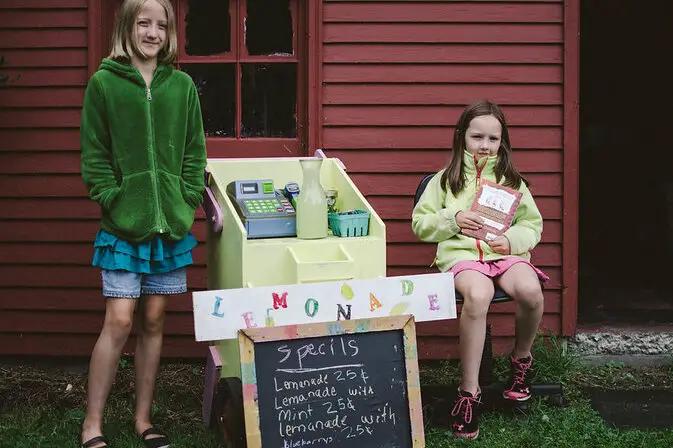
Children selling lemonade on the sidewalk have been shut down in multiple states due to lack of a vendor’s permit. Yes, you read that right — little kids running a 50-cent lemonade stand have faced fines. It’s because most localities require permits to sell food or drink, no matter the scale. Technically fair, but wildly tone-deaf.
In response, some states passed “lemonade laws” to protect kids, but not everywhere. So in many places, the risk still exists. It’s one of the most eye-roll-worthy examples of rules missing the forest for the trees. Let the kids make their quarters in peace.
2. Feeding the Homeless

In many U.S. cities, giving food to the homeless in public spaces can get you fined — or even arrested. For example, in Fort Lauderdale, Florida, you need a permit to share food in public parks. The logic is often about public health and safety, but it feels like punishing kindness. It creates a bizarre situation where compassion becomes a criminal act.
The laws are framed as regulating food distribution, but they disproportionately affect good Samaritans and community organizers. Critics argue it criminalizes poverty instead of addressing it. Most people would never guess sharing a sandwich could land you in legal trouble. Yet, it’s happened dozens of times across the country.
3. Collecting Rainwater

In some states, like Colorado (until recently), collecting rainwater on your own property was technically illegal. The thinking was that rain belongs to the watershed, and private collection could disrupt the water rights system. But for most people, it just seems absurd that you can’t catch water falling on your own roof. It feels more like borrowing from nature than stealing from it.
While Colorado has since eased up and allows limited collection, other areas still restrict or heavily regulate the practice. Violators have been fined or threatened with legal action. It’s a baffling example of bureaucracy gone wild. You’re basically told: “Don’t you dare touch that cloud juice.”
4. Having a Dirty Car
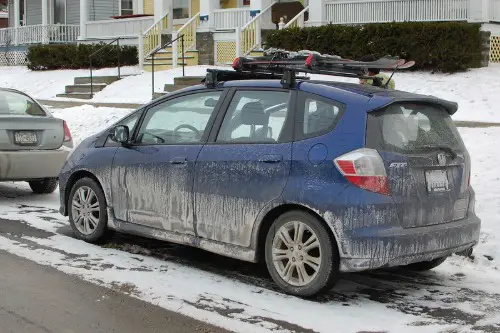
In parts of Pennsylvania and other states, you can be fined if your license plate is dirty — even if it’s readable. Officers have discretion, and if they say the grime obscures the plate, that’s enough for a citation. Never mind if it rained, snowed, or you just got off a dirt road. Apparently, your car has to look showroom ready at all times.
The law technically exists to ensure plates are visible, which makes sense in theory. But it becomes frustratingly subjective in practice. You could get fined just for not running through a car wash fast enough. It’s like being ticketed for not owning enough microfiber towels.
5. Warming Up Your Car
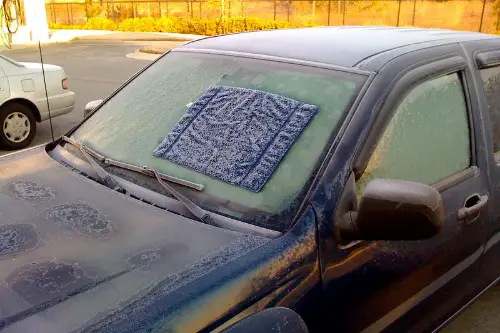
In states like Michigan and Ohio, you can be fined for leaving your car running unattended — even in your own driveway. It’s meant to prevent car theft and reduce emissions, but it rubs a lot of people the wrong way. Picture this: it’s below zero, and you’re just trying to defrost your windshield. Then, boom — a ticket shows up on your icy wipers.
The irony? If you sit inside the car while it idles, it’s legal. So it’s not really about pollution — it’s about presence. It’s a winter ritual turned into a fineable offense. Somewhere, a snowman is shaking his head.
6. Hanging Air Fresheners from Your Mirror
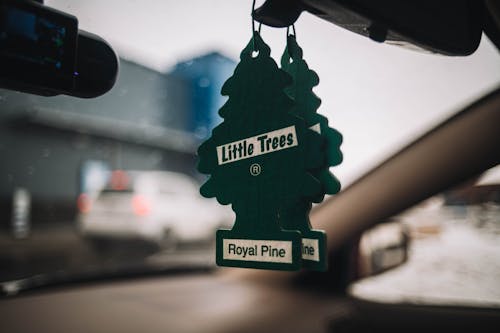
Many drivers don’t realize it, but in states like California and Virginia, hanging anything — including air fresheners — from your rearview mirror is technically illegal. The reason is that it could obstruct your view while driving. But let’s be real: that little pine tree isn’t exactly a blackout curtain. Still, people have been pulled over and fined for it.
What makes this even stranger is how inconsistently it’s enforced. Some police use it as a pretext for stopping a vehicle, which raises fairness concerns. It’s a common habit turned into a convenient loophole. And somehow, your car now smells like legal trouble.
7. Walking Without an ID
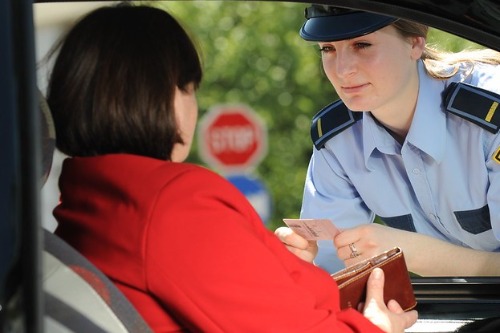
In some parts of the U.S., particularly in Nevada, you can be detained or fined for not having identification if stopped by police. These “stop and identify” laws allow officers to demand ID if they have reasonable suspicion of a crime. But that can be vague and subjective — maybe you were just walking home with headphones on. Suddenly, you’re being asked to prove who you are for no clear reason.
Not having ID on you isn’t a crime everywhere, but in some places it can quickly escalate. Critics argue it infringes on civil liberties. You don’t need a license to walk, after all. But apparently in some places, you do need paperwork just to exist outside.
8. Throwing a Frisbee on the Beach
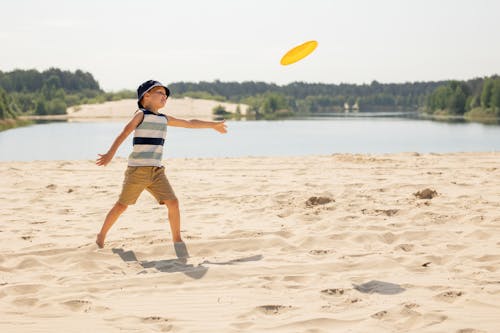
In Los Angeles County, tossing a frisbee or football on the beach was banned without a lifeguard’s permission until public outcry got the rules relaxed. The idea was to prevent injuries or disturbances, but it turned carefree beach days into potential legal minefields. Imagine being fined for playing catch on vacation. That’s a surefire way to kill the fun.
Even with rule changes, similar restrictions pop up in beach towns all over the U.S. Some are seasonal or depend on crowd levels, making them confusing to follow. It’s the kind of rule that sounds like satire but is 100% real. Next time, maybe stick to staring at the ocean quietly.
9. Leaving Your Christmas Lights Up Too Long
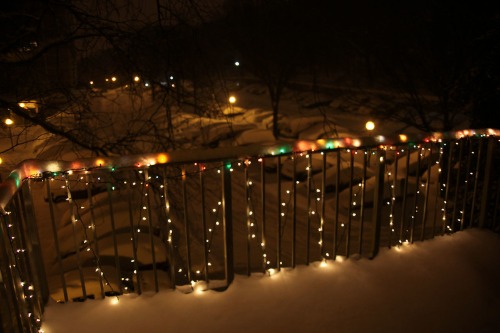
In cities like San Diego and others with homeowners associations (HOAs), you can be fined for leaving your Christmas decorations up past a certain date. Some places enforce a strict January 10th deadline. Sure, nobody wants to see reindeer in March, but does it really deserve a fine? It feels more HOA drama than civic necessity.
These fines can range from warnings to actual penalties on your property taxes. Some neighbors even report each other. It turns post-holiday laziness into a financial liability. Apparently, the spirit of the season has an expiration date — and a price tag.
10. Sitting or Lying on the Sidewalk

Cities like San Francisco and Seattle have laws that make it illegal to sit or lie on sidewalks during certain hours. They’re often called “sit-lie” ordinances and are mostly aimed at unhoused people. But they also apply to anyone — tourists, teenagers, you name it. Want to take a break on a curb? That could cost you.
These rules claim to keep sidewalks safe and clear. But critics say they’re more about making poverty less visible. Instead of offering help, they offer citations. And your crime? Having tired legs in the wrong zip code.
11. Failing to Cut Your Grass

Many towns and HOAs fine homeowners if their lawn gets too long — sometimes just over 8 inches. It’s framed as maintaining “community standards,” but the penalties can be harsh. In some cases, cities have even threatened jail time. That’s right — too much grass, and suddenly you’re Public Enemy #1.
The weirdest part? Even elderly or disabled homeowners have faced fines. Some places don’t even offer assistance before hitting people with tickets. It’s like the lawn police are more focused on aesthetics than compassion.
12. Garage Sales Without a Permit
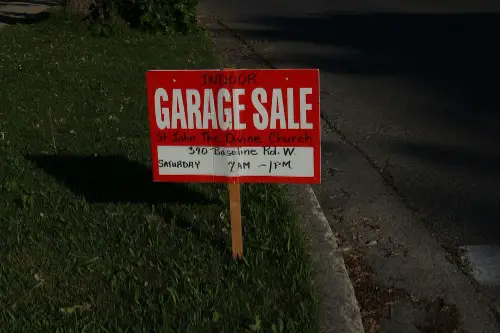
In places like Los Angeles, you need a permit for a garage sale — and you’re only allowed a certain number per year. Hold one more than allowed, and you can get slapped with a fine. The rule exists to prevent permanent “home flea markets,” but it’s a strange one to enforce so strictly. All you’re doing is trying to get rid of old toasters and baby clothes.
Some cities even limit the size or advertising of your sale. Too many signs? That’s another fine. It’s bureaucracy colliding with spring cleaning. Who knew decluttering could require government paperwork?
13. Playing Music Too Loud… During the Day

Noise ordinances are usually associated with late-night hours, but some towns penalize loud music at any time of day. In Phoenix, for instance, you can be fined for noise heard 100 feet away — even at noon. That means your backyard BBQ could land you in hot water before the burgers are even flipped. It’s hard to tell when good vibes become a legal violation.
Some neighbors use the rule to settle personal grudges. Others call it “weaponized civility.” Either way, it puts a damper on celebrations. Suddenly, dancing to Beyoncé is a potential crime.
14. Swearing in Public
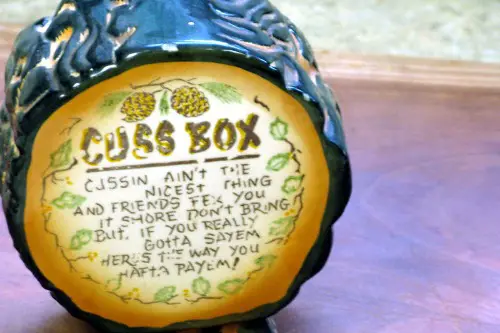
Believe it or not, cursing in public can get you fined in places like Middleborough, Massachusetts. The town once approved a $20 fine for public profanity, calling it a quality-of-life issue. It’s not widely enforced, but the rule still exists in some local codes. Basically, stub your toe and yell the wrong thing, and you’re suddenly a criminal.
This kind of law often dates back to outdated morality codes. While the First Amendment exists, local ordinances sometimes push its boundaries. And let’s be honest — who hasn’t muttered something colorful after tripping over a sidewalk crack? It feels more like policing emotion than keeping the peace.
15. Washing Your Car in Your Own Driveway
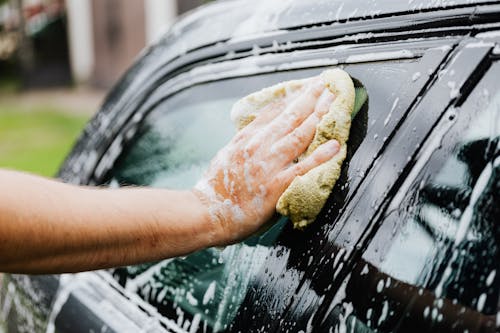
In parts of California and Texas, washing your car at home can get you fined for violating water usage or runoff regulations. The concern is that soap and grime flow into storm drains and pollute waterways. But for many homeowners, it’s baffling that hosing down a dusty car could count as an environmental offense. Should you really need a hazmat team to use a garden hose?
Some cities recommend driving to a commercial car wash instead, where water is recycled. But not everyone can afford that or find one nearby. What was once a weekend ritual now comes with legal strings attached. It’s suds, not sabotage.
16. Failing to Recycle Correctly

In some municipalities, placing recyclables in the wrong bin can lead to fines, even if it was an honest mistake. You could be penalized for tossing a greasy pizza box in the recycling or a plastic bag in the wrong container. The intentions don’t seem to matter — just the barcode scanner’s judgment. It feels like pop quizzes from the trash can.
Cities like Seattle have even sent “contamination notices” taped to residents’ bins. While recycling is important, this enforcement often confuses more than it educates. One wrong lid and you’re a garbage criminal. Trash day shouldn’t require a PhD in sustainability.
17. Wearing a Mask While Protesting
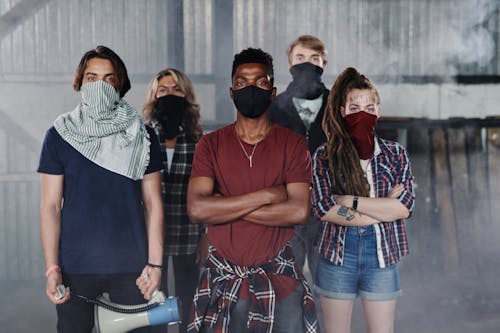
In states like Georgia and North Carolina, wearing a mask during a protest — even for anonymity or safety — can get you fined or arrested. These laws were originally aimed at stopping the KKK but are now sometimes used against peaceful demonstrators. So even if you’re masked for health reasons, you could still be violating an old statute. The rule often clashes with modern public health and free speech concerns.
During COVID, this became especially ironic. People were urged to wear masks — except, apparently, when exercising their rights. The overlap of outdated laws and current realities creates legal confusion. In some protests, staying safe means staying silent.
18. Letting Your Dog Bark Too Much

In many neighborhoods, a barking dog can earn you more than just dirty looks — it can trigger a fine. Some noise ordinances define excessive barking as anything over 10 minutes in an hour. But dogs bark — it’s kind of their thing. Punishing owners for it can feel like punishing a baby for crying.
These laws are hard to enforce fairly, and they often rely on neighbors’ complaints. One grudge could mean a citation, even if your dog was only reacting to a squirrel. There’s no bark translator, after all. You’re expected to control something that often can’t be controlled.
19. Driving Barefoot
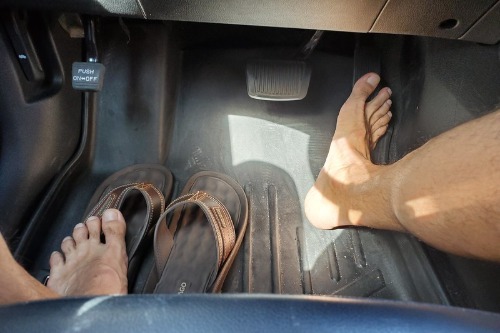
It’s a popular myth that driving barefoot is illegal everywhere — but in some states, it can actually lead to fines if it’s deemed reckless. Officers may cite you if your lack of shoes seems to impair your control of the vehicle. But plenty of people argue it’s safer than slippery flip-flops or heels. The logic feels as shaky as a socked foot on a gas pedal.
There are no blanket bans at the federal level, but some local jurisdictions treat it as a safety hazard. It’s one of those laws that exists more in the officer’s judgment than the rulebook. Next time you leave the beach, pack sneakers — just in case the fashion police moonlight as traffic cops.
20. Dancing Without a Permit

In some counties across New York and Virginia, hosting a dance event — even in a bar or private venue — requires a cabaret or dance permit. Without it, you could be fined, or the event shut down altogether. It’s a holdover from Prohibition-era laws. Footloose wasn’t just fiction — it was foreshadowing.
These permits are tough to get and often come with confusing requirements. Even spontaneous dancing at weddings has drawn scrutiny. It makes joy look like a zoning violation. You’re not just dancing — you’re apparently risking civil disobedience.
21. Leaving Your Trash Can Out Too Early
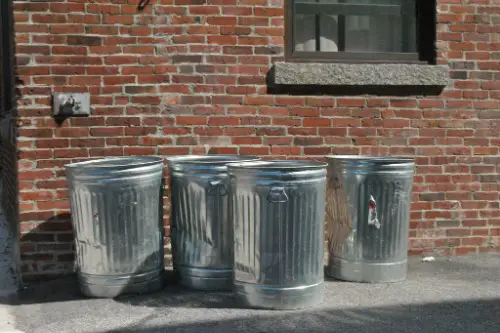
In some suburbs, putting your trash cans on the curb too early — or leaving them too long after pickup — can earn you a fine. Some ordinances specify exact time windows, down to the hour. Miss it by even a few minutes, and you could be paying for your punctuality. It’s peak suburbia micromanagement.
The logic is about keeping streets tidy, but it often feels like busybody enforcement. Even senior citizens and night shift workers have been cited for it. Your garbage can isn’t hurting anyone — but to some, it’s apparently a criminal container. Timing is everything when trash becomes treasure to code enforcers.
22. Parking the Wrong Way on the Street

If you park your car facing the wrong direction — even in front of your own house — you could be fined in many cities. It’s considered a safety hazard because you’re technically driving on the wrong side of the road to park that way. But for short, quiet streets, it feels completely harmless. You’re being punished for convenience.
Some areas enforce this strictly during street cleaning or snow removal seasons. Others cite it under obscure traffic codes. It’s one of those rules you break without knowing until you get that yellow envelope. Your mistake? Facing east when west was apparently the legal vibe.
23. Letting Your Kids Walk to School Alone

In certain counties, parents have been fined or investigated for letting children walk to school or play in parks unsupervised. It falls under vague definitions of “child neglect.” Even if the child is mature and the neighborhood is safe, the law can still step in. It turns independence into a red flag.
Some states have pushed back with “free-range parenting” laws to protect these choices. But elsewhere, it’s still a legal gray area. The line between cautious parenting and government overreach is blurry at best. And it leaves parents stuck between trust and threat.
24. Forgetting to Shovel Your Sidewalk
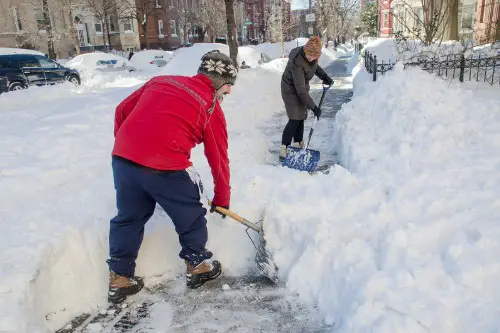
In snowy cities like Chicago or Minneapolis, homeowners are responsible for clearing sidewalks in front of their property — or risk a fine. It doesn’t matter if you were sick, out of town, or the snow fell overnight. Miss the deadline, and you could be ticketed. Mother Nature apparently comes with municipal terms and conditions.
These rules exist for pedestrian safety, but the enforcement can feel heartless. Elderly homeowners are especially vulnerable. Snowfall isn’t optional, but responsibility for it seems to be. If your boots can crunch it, the city can charge you for it.
25. Jaywalking in Empty Streets
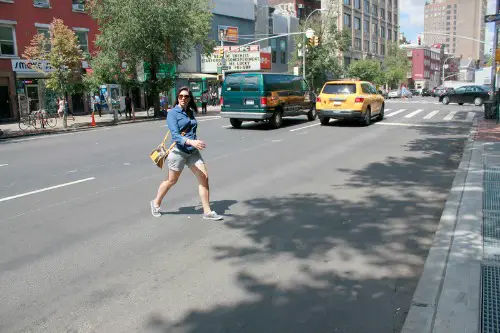
In cities like Los Angeles and Atlanta, you can get fined for jaywalking — even if the road is totally empty. The law says you must cross at designated crosswalks, no matter the traffic. But when no cars are around, it feels like a ticket for common sense. Your only crime? Efficiency.
Critics argue the law is used disproportionately and often unfairly. It’s less about safety and more about revenue or profiling. For many pedestrians, it’s like the sidewalk comes with invisible tripwires. Cross the street, pay the price.
26. Letting Grass Clippings Fall in the Street
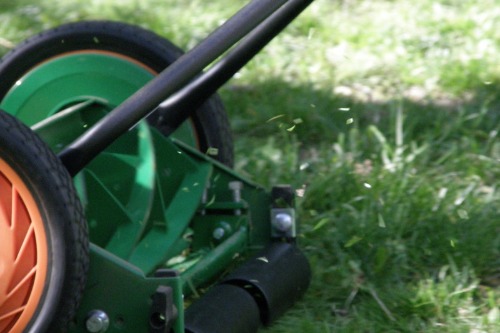
In some towns, allowing grass clippings to land in the street while mowing can lead to a fine. It’s seen as a storm drain hazard and traffic issue for cyclists. But for casual lawn care, that level of precision feels unreasonable. You’re mowing, not performing surgery.
Cities argue that clippings contribute to flooding and pollution. Still, enforcement often feels extreme, especially when no harm is done. You’re just trying to keep your lawn neat — not wage war on the sewer system. Apparently, blades of grass can cut into your wallet too.
27. Selling Baked Goods at a Church Fundraiser

In many states, selling homemade pies or cookies at a school or church bake sale can be technically illegal without proper food licenses. These “cottage food laws” vary widely and are often confusing. Volunteers can be fined for skipping formal kitchen inspections. You’re not a criminal — just a parent with a good banana bread recipe.
Some states have eased these laws, but others enforce them strictly. It turns good intentions into risky business. Health concerns are real, but sometimes the laws forget the human element. Cupcakes shouldn’t come with court dates.
28. Not Carrying a Dog Poop Bag
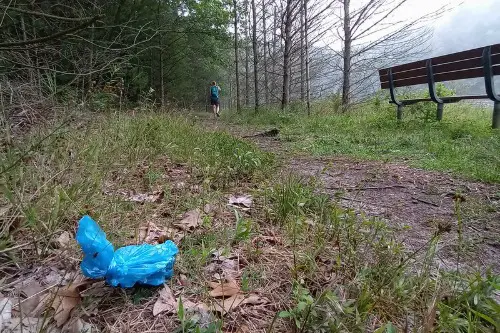
In many cities, failing to carry a bag while walking your dog — not just failing to pick up poop — is a fineable offense. You could be cited just for being unprepared, even if nothing happened. It’s a “just in case” violation. Like getting ticketed for not having an umbrella on a sunny day.
While pet waste laws make sense, the preemptive aspect feels excessive. It punishes forgetfulness more than neglect. Most owners already want to be responsible. This law assumes guilt before the mess even hits the grass.
29. Using the Wrong Type of Lightbulb

In some energy-conscious states, using incandescent bulbs in fixtures where LEDs are required can be considered a code violation. Especially in rental properties or commercial spaces, this tiny detail can lead to fines. It’s meant to promote energy efficiency — but feels like micromanaging your wattage. The light police have entered the chat.
Enforcement varies but has surprised many people during inspections. It’s another case of over-regulation cloaked as progress. Save the planet, sure — but can we do it without turning our light sockets into liability zones?
30. Playing a Piano in Your House Too Loudly

In some cities, even playing musical instruments inside your home can trigger a noise complaint — and a fine. This has happened to pianists, drummers, and even violin students. The law says it disturbs the peace, but it feels more like criminalizing hobbies. Your living room concert could now come with a bill.
These ordinances don’t always account for reasonable daytime noise. A few thin walls and a testy neighbor are all it takes. It turns artistic expression into a potential offense. Beethoven wouldn’t stand a chance in a townhouse.
This post 14 Things You Can Get Fined For in America That Make No Logical Sense was first published on American Charm.


